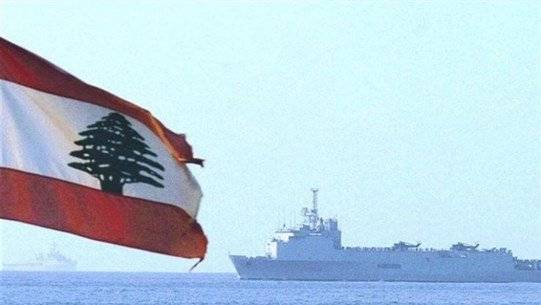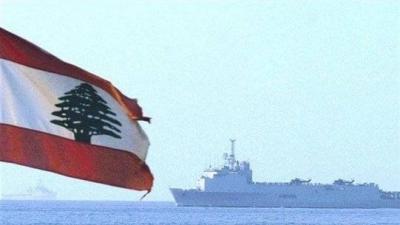Lebanon is waiting for a response expected to be brought by the American mediator for maritime border demarcation with Israel, Amos Hochstein, following his visit to Tel Aviv alongside U.S. President Joe Biden. There is uncertainty surrounding the details of the new proposals he will present, alongside Lebanese hopes that the message will be positive enough to resume indirect negotiations under the auspices of the United Nations at the international forces’ headquarters in Naqoura, southwestern Lebanon. Hochstein relayed a message from Lebanon to Tel Aviv last month to present to the Israeli side, but he has not returned with an answer yet. Sources involved in the ongoing diplomatic efforts stated that there is "positivity" considering that "developments have occurred regarding the file," which they inferred from the recent visit by U.S. Ambassador to Beirut, Dorothy Shea. However, these sources declined to elaborate on the details, confirming to "Asharq Al-Awsat" that they are waiting for a decisive response from Hochstein upon his return to Beirut.
Thus far, Hochstein has not sent any verbal or written messages to the Lebanese authorities regarding the Israeli response to the Lebanese proposal, according to the sources. This was also emphasized by Lebanese President Michel Aoun during his discussions with French Ambassador Anne Grillo, where he highlighted the significance of the southern maritime border demarcation issue and the need for positive results regarding it.
Lebanon remains committed to the American mediation led by Hochstein, who visited Beirut three weeks ago to hold meetings with Lebanese officials, including President Aoun, in an effort to find a settlement regarding the maritime border demarcation between Lebanon and Israel. Following the Israeli response that Hochstein will convey, a date will be set to resume the indirect negotiations under the United Nations' supervision at its headquarters in Naqoura, facilitated by American mediation.
While official Lebanese silence surrounds the discussion details, local media earlier reported progress in the negotiations regarding Israel’s approval to trade the entire Karish field in favor of Israel for the entire Kana field in favor of Lebanon. There were also discussions about Israeli demands to gain part of Block 8 in the far southwestern part of the disputed area, which Lebanon opposed.
When asked about the proposals currently being discussed, sources following the demarcation file indicated that what is being circulated "does not exceed being present in the media, and may not correspond to reality," emphasizing Lebanon's firm stance on its land and maritime rights and its resources on land and sea. Last week, Hezbollah sent three drones into the airspace of the Karish area, and the Israeli army announced that it shot them down, a move that created a division in Lebanon regarding this step. Well-informed sources regarding Hezbollah’s position defended the sending of the drones, stating that it "reinvigorated the negotiations after they had cooled down following Hochstein’s last visit to Lebanon, and it reactivated them." However, they underscored in statements to "Asharq Al-Awsat" that the party "supports the official Lebanese stance and stands behind the state." The sources noted that Hezbollah "has not changed its clear position regarding standing behind the state and is not involved in the specifics of the negotiations and proposals being discussed; because it commits to the state's position, which is primarily concerned with this file."
Israeli media reported yesterday that the Israeli government had filed a complaint with the United Nations Security Council regarding Hezbollah's drones. Israeli media quoted Israel's Ambassador to the UN, Gilad Erdan, as saying that "his government has requested the Security Council's intervention after Hezbollah launched drones over the Karish natural gas platform last week." An Israeli site mentioned that "Israel claimed that Hezbollah's launch of drones towards the Karish gas field constitutes provocation and a blatant violation of Security Council resolutions, and that Tel Aviv will take all necessary actions to protect its energy infrastructure."




